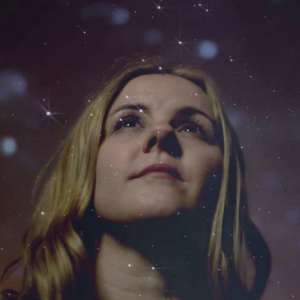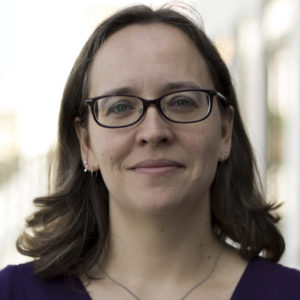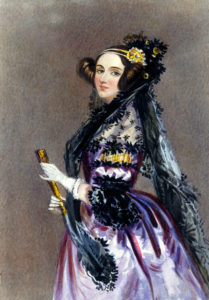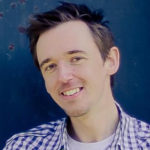Every year, thousand upon thousand of tweets are sent about Ada Lovelace Day, sending our hashtags trending around the world. Here are some of the ones that caught our eye from Ada Lovelace Day 2016!
Author Archives: Suw
Ep 6: Prof Haley Gomez & Dr Karen Masters
iTunes | Google Play | RSS (Soundcloud) | Stitcher
Welcome to the Ada Lovelace Day podcast, highlighting the work of women in STEM. Each month, we talk to women from around the STEM world about their careers, as well as talking to women and men, about historic and modern women’s achievements, discoveries, and inventions.
In this episode
01:33: Astrophysicist Professor Haley Gomez talks about how cosmic dust is formed, how it affects our view of the universe, and it’s role in the formation of planets.
26:53: Astronomer Dr Karen Masters talks about Mary Somerville, mathematician, astronomer and translator of Pierre-Simon Laplace’s book about the Solar System, Mécanique Céleste.
Our interviewees
Professor Haley Gomez
 Professor Haley Gomez is an astrophysicist working at Cardiff University’s School of Physics and Astronomy. She uses the most sensitive infrared cameras in space, such as the Herschel Space Observatory and the James Web Space Telescope, to reveal the origins of the building blocks of life: cosmic dust grains. She has published over 100 papers, and her research has been recognised with an award from the Royal Astronomical Society for noteworthy contribution for an early career researcher. In 2015, she was also awarded a prestigious and highly competitive grant worth €1.8 million to measure the dust content of galaxies since the Big Bang.
Professor Haley Gomez is an astrophysicist working at Cardiff University’s School of Physics and Astronomy. She uses the most sensitive infrared cameras in space, such as the Herschel Space Observatory and the James Web Space Telescope, to reveal the origins of the building blocks of life: cosmic dust grains. She has published over 100 papers, and her research has been recognised with an award from the Royal Astronomical Society for noteworthy contribution for an early career researcher. In 2015, she was also awarded a prestigious and highly competitive grant worth €1.8 million to measure the dust content of galaxies since the Big Bang.
Throughout her career, she has also taken a leading role in bringing research to the public and, in particular, encouraging girls and children from disadvantaged backgrounds. She received an Inspire Wales Award in 2014 for most inspirational person in the Science and Technology Category for this work.
You can find out more about Haley on her website, watch her TED talk at the bottom of this page, and can follow her on Twitter: @astrofairy.
Haley’s work has featured in a number of articles:
- Phys.org: Universe becoming cleaner as cosmic dust gets mopped up by stars, astronomers reveal
- Space.com: Violent star explosion reveals origins of space dust
- Phys.org: Explosive origins for cosmic dust
Dr Karen Masters
 Dr Karen Masters is an astronomer working at the Institute of Cosmology and Gravitation, University of Portsmouth in the UK. She is the spokesperson for the Sloan Digital Sky Survey (SDSS-IV) and the project scientist for the Galaxy Zoo Citizen Science Project. As well as working on her research into galaxy evolution, she has a passion for science (especially astronomy) outreach and public engagement, and for the promotion of equality and diversity in STEM. Karen contributes to the Galaxy Zoo blog and the SDSS science blog.
Dr Karen Masters is an astronomer working at the Institute of Cosmology and Gravitation, University of Portsmouth in the UK. She is the spokesperson for the Sloan Digital Sky Survey (SDSS-IV) and the project scientist for the Galaxy Zoo Citizen Science Project. As well as working on her research into galaxy evolution, she has a passion for science (especially astronomy) outreach and public engagement, and for the promotion of equality and diversity in STEM. Karen contributes to the Galaxy Zoo blog and the SDSS science blog.
You can find out more about Karen on her blog, The Beautiful Stars, and can follow her on Twitter, @KarenLMasters. And you can also read an excerpt from her More Passion for Science chapter about Mary Somerville, and read the Royal Astronomical Society’s blog post on Somverville.
Thanks to our sponsor
This podcast is brought to you thanks to the generous support of ARM, our exclusive semiconductor industry sponsor. You can learn more about ARM on their website at ARM.com and you can follow them on Twitter at @ARMHoldings.
If you would like to join ARM as a sponsor of the Ada Lovelace Day Podcast, please email us.
Get in touch!
If you’d like to send us feedback about the show, or if you’d like to take part, please email us. We’re especially interested in hear from men who would like to talk to us about the women in STEM who have influenced them, especially those women who are less well known.
Credits
Episode edited by Andrew Marks.
Our links
Videos
Explore Ada Lovelace’s Bernoulli program with Wolfram
 In 1843, Ada Lovelace became the first person to publish what we would now call a computer program, a set of instructions to calculate Bernoulli’s Numbers, written for Charles Babbage’s unbuilt Analytical Engine. Lovelace had translated a paper about the Analytical Engine written in French by Italian mathematician Luigi Menabrea, and had at Babbage’s suggestion added her own notes explaining the potential of the Analytical Engine in depth.
In 1843, Ada Lovelace became the first person to publish what we would now call a computer program, a set of instructions to calculate Bernoulli’s Numbers, written for Charles Babbage’s unbuilt Analytical Engine. Lovelace had translated a paper about the Analytical Engine written in French by Italian mathematician Luigi Menabrea, and had at Babbage’s suggestion added her own notes explaining the potential of the Analytical Engine in depth.
You can now explore the Bernoulli program using the Wolfram Language, a symbolic language which “emphasizes symbolic computation, functional programming, and rule-based programming”.
The interactive notebook begins with the Gauss Schoolboy Problem:
As a young schoolboy, [German mathematician Carl Friedrich Gauss] was tasked with adding the first 100 integers, i.e. what is 1 + 2 + 3 + 4 + … + 98 + 99 + 100? (The answer is 5,050.) Gauss reportedly produced the correct answer within seconds. How did he do this?
The workbook demonstrates how to calculate these numbers, and thus then how to calculate Bernoulli Numbers, “a sequence of rational numbers with deep connections to number theory.” From the workbook:
Back in the 1600s, people spent their lives making tables of sums of powers of integers. But Jakob Bernoulli pointed out that all such sums can be expressed as polynomials, with the coefficients being related to what are now called Bernoulli numbers. And in 1713, Bernoulli was proud to say that he had computed the first 10 Bernoulli numbers ‘in a quarter of an hour’—reproducing years of other people’s work.
Ada Lovelace was calculating these numbers by hand!
You can also scans of Lovelace’s letter to Babbage discussing the Bernoulli numbers at the end of the workbook.
The workbook was created by Wolfram Research, makers of Mathematica and Wolfram|Alpha.
was created by Wolfram Research, makers of Mathematica and Wolfram|Alpha.
Welcome to our new sponsor: Mendeley
 We are always happy when we get to announce new sponsors, but I’m particularly happy when those sponsors choose also to support schools by sponsoring our Ada Lovelace Day Live Scholarships, providing free tickets for school parties that wouldn’t otherwise be able to attend. This year, Mendeley is providing the support for several school groups to attend our science cabaret at The IET on 11 October.
We are always happy when we get to announce new sponsors, but I’m particularly happy when those sponsors choose also to support schools by sponsoring our Ada Lovelace Day Live Scholarships, providing free tickets for school parties that wouldn’t otherwise be able to attend. This year, Mendeley is providing the support for several school groups to attend our science cabaret at The IET on 11 October.
Mendeley is a productivity tool for researchers that combines a reference manager and academic social network. It helps you build and manage a fully searchable library, find new and relevant articles, monitor and showcase your publications, and annotate, share and cite documents. By providing a secure, fast and simple way to stay up to date on literature and share information with other researchers, Mendeley enables easy collaboration and greater productivity. It will also support the search for potential collaborators and new research positions.
You can follow Mendeley on Twitter: @mendeley_com
We depend on our sponsors to fund not just Ada Lovelace Day Live!, but all of our work including our resources database, free education pack for teachers, podcast, and free monthly newsletter. If you would like to join them and help us to expand our work, please take a look at our current sponsorship packages!
Ep 5: Roma Agrawal & Dr Peter Etchells
iTunes | Google Play | RSS (Soundcloud) | Stitcher
Welcome to the Ada Lovelace Day podcast, highlighting the work of women in STEM. Each month, we talk to women from around the STEM world about their careers, as well as talking to women and men, about historic and modern women’s achievements, discoveries, and inventions.
In this episode
01:23: Structural engineer Roma Agrawal tells us about her work on the iconic Shard skyscraper in London, and the challenges of retrofitting Victorian buildings.
26:15: Biological psychologist Dr Pete Etchells talks about the work of Dr Suzanne Gage, who investigates the relationships between recreational drug use and mental health.
Ada Lovelace Day Live!
ALD Live is an entertaining evening of geekery, comedy and music suitable for everyone over the age of 12. If you’d like to enjoy a taster, take a look at our videos from 2015, 2014 and 2013!
Our amazing ALD Live! speakers this year are:
- Yewande Akinola, design engineer focused on sustainable water supply systems and the engineering design coordination of large projects in the built environment.
- Dr Sheila Kanani, planetary physicist, science presenter, secondary school physics teacher and space comedienne with a background in astrophysics and astronomy.
- Dr Kat Arney, science writer and broadcaster whose work has featured in the New Scientist, Wired, the Guardian, the Times Educational Supplement, BBC Radio 4, the Naked Scientists and more.
- Jenny Duckett, developer with the Government Digital Service.
- Dr Sara Santos, mathematician, director and founder of Maths Busking.
- Dr Bissan Al-Lazikani, computational biologist working on drug discovery for Cancer Research UK.
- Dr Anna Jones, deputy science leader for the British Antarctic Survey’s Atmosphere, Ice and Climate Team.
- Helen Keen, comedian and our fabulous compère.
Tickets are available now for £20/£5, so get yours now before they run out! Find out more about our speakers, venue, tickets and schedule.
Our interviewees
Roma Agrawal

Roma Agrawal is a structural engineer was part of the team that built The Shard. She was awarded ‘Young Structural Engineer of the Year’ in 2011 by the Institution of Structural Engineers and was a finalist in the IET’s Young Woman Engineer award 2012. Roma works to raise awareness of engineering, correct the preconceptions about the field and inspire young people about STEM and engineering.
Read an excerpt from Roma’s More Passion for Science chapter on Brooklyn Bridge engineer Emily Warren Roebling, and watch Roma’s 2014 ALD Live! talk on bridges on YouTube or at the bottom of this post. And you can follow Roma on Twitter: @romatheengineer.
Dr Pete Etchells
 Dr Pete Etchells is a senior lecturer in biological psychology at Bath Spa University, and the science blog network coordinator for the Guardian, where he also writes for the psychology blog Head Quarters. He researches the effects of playing video games on mental health and behaviour, and more generally the effects of technology use on the brain and behaviour. You can follow Pete on Twitter: @peteetchells.
Dr Pete Etchells is a senior lecturer in biological psychology at Bath Spa University, and the science blog network coordinator for the Guardian, where he also writes for the psychology blog Head Quarters. He researches the effects of playing video games on mental health and behaviour, and more generally the effects of technology use on the brain and behaviour. You can follow Pete on Twitter: @peteetchells.
Pete’s subject this month was Dr Suzanne Gage, an epidemiologist who use the Children of the 90s dataset to investigate relationships between recreational drug use and mental health. She has a blog called Sifting the Evidence, which won the 2012 Science Blog prize.
Read an except of Suzi’s Passion for Science chapter on Jean Golding OBE, or follow Suzi on Twitter: @soozaphone.
Thanks to our sponsor
This podcast is brought to you thanks to the generous support of ARM, our exclusive semiconductor industry sponsor. You can learn more about ARM on their website at ARM.com and you can follow them on Twitter at @ARMHoldings.
If you would like to join ARM as a sponsor of the Ada Lovelace Day Podcast, please email us.
Get in touch!
If you’d like to send us feedback about the show, or if you’d like to take part, please email us. We’re especially interested in hear from men who would like to talk to us about the women in STEM who have influenced them, especially those women who are less well known.
Credits
Episode edited by Andrew Marks.